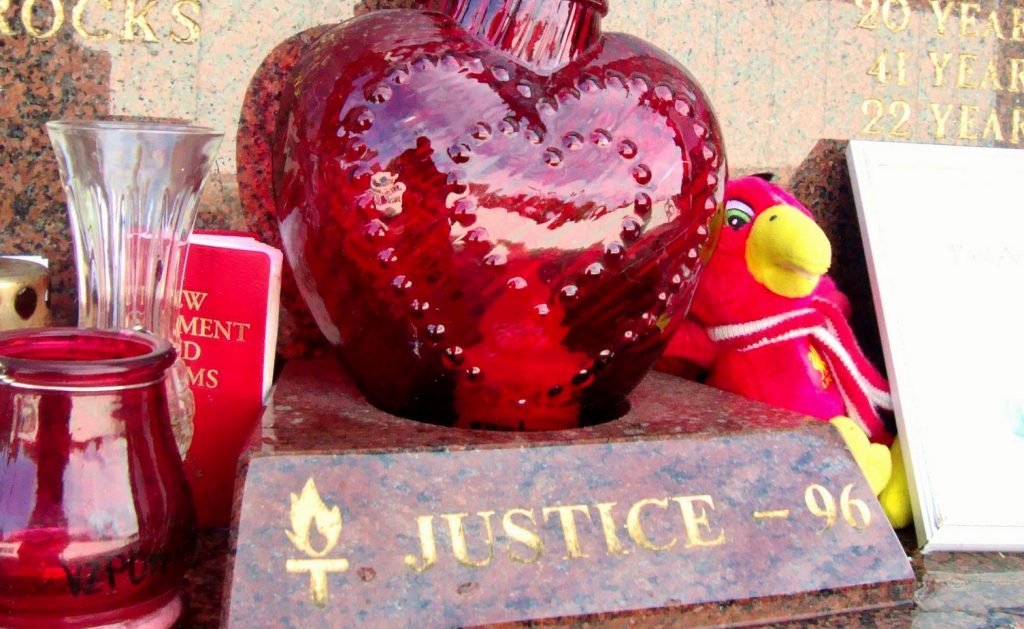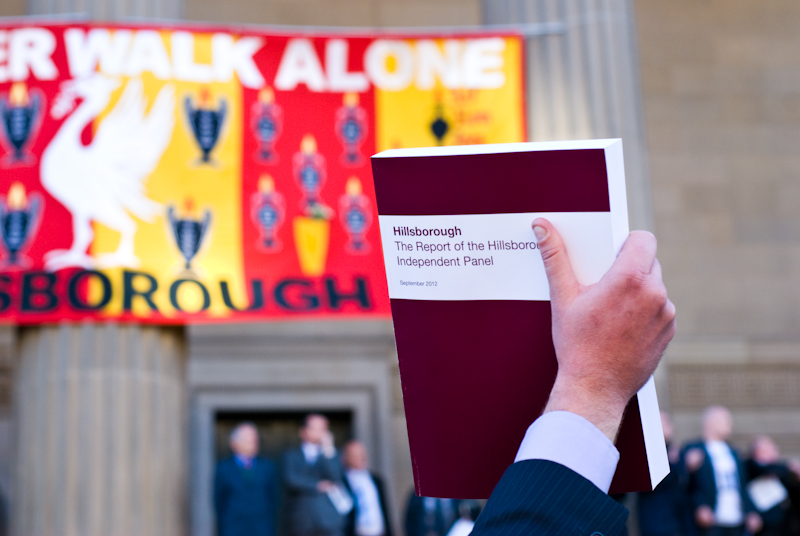Six people, including two former senior police officers, have been charged over the deaths of almost 100 football fans at the Hillsborough disaster in 1989.
Ninety-six people died in a crush at the stadium in Sheffield before Liverpool were due to play Nottingham Forrest, and hundreds more were left injured.
Criminal charges have now been brought against six men, after a jury in a new inquest ruled the fans had been unlawfully killed last year.
An inquest, however, is a judicial inquiry to determine causes of death. Inquests are not criminal proceedings and an inquest jury cannot find anyone guilty of a criminal offence.
The Charges
The head of Special Crime at the CPS comments on the criminal charges brought against six individuals over the Hillsborough disaster pic.twitter.com/IfExzujxg0
— Sky News (@SkyNews) June 28, 2017
Video Credit: Sky News / Twitter
Former Chief Superintendent David Duckenfield faces the charge of manslaughter by gross negligence of 95 fans, while former Chief Inspector Norman Bettison will be charged with four counts of misconduct in public office.
Duckenfield cannot be charged over the death of the 96th victim, as he died four years after the disaster.
The other four men facing charges are:
- Graham Henry Mackrell, Sheffield Wednesday Football Club’s company secretary and safety officer at the time of the disaster in 1989
- Peter Metcalf, the solicitor acting for the South Yorkshire Police during the Taylor Inquiry and the first inquests
- Former Chief Superintendent Donald Denton of South Yorkshire Police
- Former Detective Chief Inspector Alan Foster of South Yorkshire Police
Mackrell is charged with three offences relating to health and safety at sports grounds, will Metcalf, Denton, and Foster face charges with doing acts with an intent to pervert the course of justice.
Hillsborough and Human Rights

Image Credit: Alex Donohue / Flickr
The case against these six men is now an active trial, so it is important not to say anything that would prejudice their right to a fair trial – something which is protected as part of our human rights. However, it is clear that human rights have played a huge role in bringing the investigations, and subsequent charges, surrounding the disaster.
Article 2 of the Human Rights Convention protects the most basic of all our rights – the right to life. As well as ensuring the state cannot take the lives of its citizens, it also means there must be a full investigation into the wider circumstances surrounding a death.
Without the Human Rights Act we would never, ever have had the second inquest
Becky Shah, Daughter of Hillsborough Victim
For the Hillsborough families, this means they are entitled to know not just how their loved ones died, but the circumstances leading up it to. At an original inquest into the fans’ deaths they had been recorded as “accidental deaths”, but using the Human Rights Act, families were able to press for the circumstances to be re-examined.
In the wake of such devastating tragedies, Article 2 is the most important of our rights. While we may be unable to reverse a tragedy, it is vital to be provide answers to families.
Want to know more about Hillsborough and Human Rights?
- Read the full statement by the Crown Prosecution Service
- See the previous verdict of unlawful killing by a jury last year
- Take a look at the news that the Government has announced a new public advocate







